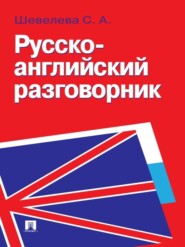По всем вопросам обращайтесь на: info@litportal.ru
(©) 2003-2025.
✖
Английский язык. 101 типичная грамматическая ошибка
Настройки чтения
Размер шрифта
Высота строк
Поля
6) в конце недели
7) в начале семестра (term)
8) в конце семестра
9) в начале спектакля
10) в самом конце
21. In time – on time
Хотя эти словосочетания переводятся одинаково, они имеют различное значение:
on time вовремя (точно по расписанию/графику/плану)
in time вовремя (в очень удачное время)
21-1. Read and translate the sentences.
1. Peter wants the meeting to start on time.
2. Only one of the last six trains has been on time.
3. Yesterday the train came ten minutes behind time but I hope it will be on time today.
4. We arrived in time to get good seats.
5. We came to the Zoo in time to see the animals fed.
6. I nearly drove into the car in front, but I stopped just in time.
7. He would have died if they had not got him to the hospital in time.
21-2. Translate into English.
1. Мы привезли его в больницу вовремя. И его спасли.
2. Он пришел ко врачу вовремя, ровно в 3 часа, как было назначено.
3. Поезд пришел вовремя.
4. Марк ушел вовремя и не встретился с Джулией.
5. Я приду вовремя, как мы договаривались. Я никогда не опаздываю.
22. Besides – except
Хотя эти предлоги переводятся одинаково, они имеют противоположные значения:
besides кроме (в дополнение к)
except кроме (за исключением)
Note: В отрицательных предложениях эти предлоги взаимозаменяемы:
He has nothingbesides/excepthis salary.
22-1. Read and translate the sentences.
1. Besides literature, they have to study history and philosophy.
2. Besides the violin, he plays the piano and the flute.
3. Who was at the party besides the Bensons?
4. She has three other hats besides this.
5. Does anyone besides him know about it?
6. There were five of us besides Ann.
7. He gets up very early every day except Sunday.
8. I like all musical instruments except the violin.
9. It was old news and everybody knew about it except her.
10. Avoirdupois is a system of weights used in the UK and the USA for all goods except precious metals and stones, and medicines.
22-2. Translate into English.
1. Кроме английского он знает два иностранных языка.
2. Она занимается каждый день кроме воскресенья.
3. Мы работаем каждый день с 10 часов кроме субботы и воскресенья.
4. Все уже пришли кроме Ника.
5. Кто кроме Анны читал эту книгу?
МЕСТОИМЕНИЯ
23. Many – much
Местоимение manyмного употребляется с исчисляемыми существительными, muchмного – с неисчисляемыми существительными или самостоятельно, т. е. без существительного:
many books/cities/countries/people











